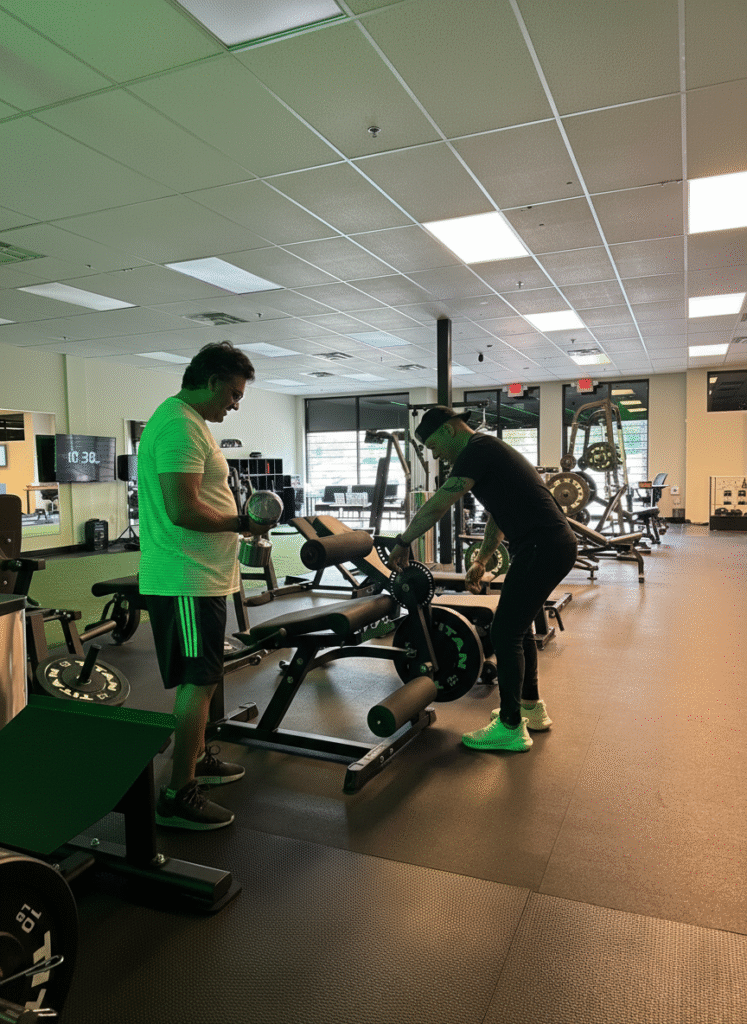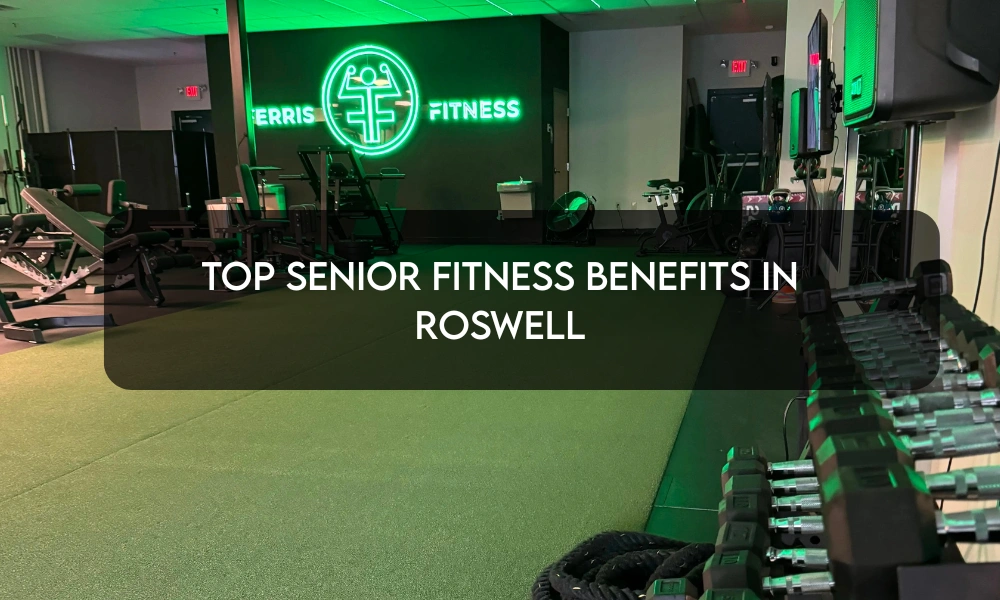If you think strength training is just for bodybuilders, think again. I work with professionals, parents, and students every day who just want to feel better, move better, and stay strong enough to handle life. Whether you sit at a desk, chase kids, or juggle long commutes, building strength can make everything easier.
Here’s what you’ll learn in this guide:
- Why strength training matters for everyday people in Duluth
- How to start safely without overdoing it
- The difference between heavy lifting and smart lifting
- Practical tips to keep progress moving
- Local resources to help you stick with
Why Strength Training Works for Real Life
Strength training isn’t just about big muscles. It’s about making daily life easier. Carrying groceries, climbing stairs, or even keeping good posture during long meetings feels smoother when your body is strong.
A big plus? Strength training boosts your metabolism. That means your body uses more energy even when you’re resting. Combine that with consistent workouts and you’ll notice better energy, sharper focus, and less nagging pain.
If you’ve been sitting too much or dealing with stiffness, adding even a couple of sessions per week can change how you feel. (And yes, lifting a suitcase into the overhead bin counts as real-world strength training.)
Getting Started Without Stress
Many beginners worry about doing it wrong or getting hurt. Here’s the good news: you don’t need heavy barbells or fancy machines to start. Bodyweight exercises like squats, push-ups, and planks are enough to build a strong foundation.
The trick is consistency. Start small two to three sessions a week and progress at your own pace. When you’re ready, adding free weights or resistance bands can challenge your muscles in new ways.
Want some quick ideas? I’ve written a beginner bodyweight workout guide that can be done at home.
Heavy Lifting vs. Smart Lifting
Do you need to bench press 300 pounds to be considered strong? Absolutely not. What matters is lifting with proper form and gradually building resistance. That’s how you avoid injury and make steady gains.
Light weights can also be effective when used correctly. Training with lighter loads and higher reps builds muscular endurance, which helps in sports, daily activity, and even recovery. If you’re curious about that approach, check out my breakdown on strength training with lighter weights.
Staying Consistent in Duluth
Most people don’t quit because the exercises are too hard, they quit because life gets in the way. Work deadlines, family schedules, or long drives can derail even the best intentions.
Here are a few ways to stay on track:
- Book sessions like meetings. Treat workouts as appointments you can’t cancel.
- Keep it short. Even 30 minutes twice a week makes a difference.
- Find accountability. Whether it’s a trainer or a friend, having someone expecting you increases follow-through.
- Mix it up. Rotate exercises to keep things interesting and prevent plateaus.
For some, group training is the answer. It creates a built-in community and keeps the energy high. I’ve seen a lot of success stories come out of group fitness here in Duluth.

Nutrition’s Role in Strength Gains
You can lift all you want, but if your diet isn’t supporting your efforts, progress will stall. Protein is especially important because it helps repair and grow muscle after workouts.
Simple guideline: aim for a protein source at every meal. Chicken, fish, eggs, beans, and even Greek yogurt all fit the bill. I wrote more about it in my protein benefits with exercise guide.
Hydration matters too. Water keeps joints healthy and muscles working properly. If you’re lifting heavy or training in Georgia heat, you’ll need even more fluids than you think.
Recovery: The Part Everyone Skips
Recovery doesn’t mean doing nothing, it means giving your muscles time to rebuild stronger. That’s where stretching, sleep, and active recovery days come in.
If you’re sore, stiff, or battling tightness, structured stretching can make a big difference. Some of my clients swear by stretch therapy, especially when combined with regular training.
Think of recovery as part of the program, not an afterthought. Your body adapts during rest, not while you’re lifting.
Final Thoughts
Strength training in Duluth isn’t reserved for athletes or bodybuilders, it’s for anyone who wants to live stronger and feel better. Start small, stay consistent, and focus on form. You’ll be surprised how quickly simple changes stack up.
Whether you train at Ferris Fitness or at home, the goal is the same: build a body that supports your life, not one that drags you down.
So if you’re ready to lift without the confusion, let’s keep it simple, keep it consistent, and keep it local.

Top Benefits of Senior Personal Training in Roswell
Getting older doesn’t mean slowing down, it means training smarter. And if you’re a Roswell resident looking to stay strong, active, and independent, senior personal

Private Gym or Big Box? Georgia’s Fitness Showdown
If you live in Georgia and you’re ready to get serious about fitness, you’ve likely asked yourself this question: Should I train at a private

6 Week Beginner Fitness Plan in Buford, GA – Build Your Strength the Right Way
Starting a new fitness routine can feel confusing especially if you’re not sure what works or where to begin. At Ferris Fitness, we make that
